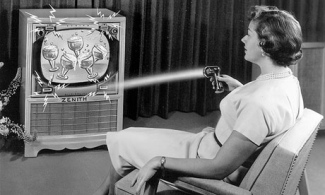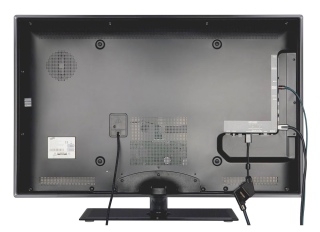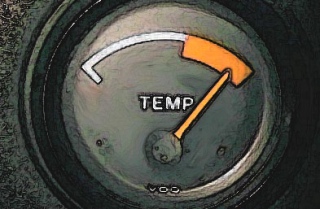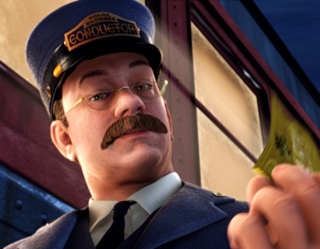
The control systems for television aren’t very good. One reason they persist is that once a viewer is watching a selected program, the control system recedes into the background. In the course of watching a presentation, the essential controls, the ones that control sound (louder, softer, mute), generally work quite well. The rest of the control system is a disaster that people have learned to accommodate. This snarl of technology around controlling a television is generally why people think there’s room for revolutionary innovation in the “battle for the living room.”

Generally there have been a couple of approaches. The universal remote, a complex remote control device that consolidates all of the other remote controls. So instead of having five or six complex remote controls, you have one really really complex remote control. Google TV’s remote control with a keyboard pushes towards the limits of this kind of conceptual framework. The addition of voice command and SIRI is another solution at the limit. The other approach involves creating a “smart” television. This would be accomplished by integrating a Network connected computer into the television device. This new device would make all of the other devices obsolete. Various forms of this device have been foisted upon the public. It’s not that people don’t buy these “smart” televisions, it’s just that no one uses any of their capability.
The solution to this tangle of technology lies in the role of the remote control. The name “remote control” describes what the device does. It takes the control system from the television and allows it to operate at a distance from the television itself. That meant you didn’t have to get up off the sofa and walk across the room to select a program or control the sound volume. The “remote” has essentially provided the same service since it entered the living room in the mid-1950s. Nikola Tesla described its basic operation in a patent application more than 50 years earlier than that. To some extent, even cloud computing is just a variation of the same theme.
It was while researching wireless audio systems for my study that the basic change in the “remote” became clear to me. With all of my music available through a cloud storage system, I didn’t need a music system to decode physical media. From the many choices available, I selected the Bowers & Wilkins A7. It’s a single speaker that sits in a home WiFi network and listens for AirPlay signals. You can send it music via AirPlay from your phone, iPod, tablet or desktop computer—and that music can be stored remotely on the Network. Radio streams, YouTube sound, podcasts, etc. can be also be sent to this audio system. The key is the change in the signal path. The “remote” is no longer just a controller, it’s the receiver/broadcaster of the audio signal. The “stereo system” now listens for AirPlay signals, decodes and presents the sound. I liked this solution so much, I set up my traditional stereo to operate similarly using AirPort Express as one of the auxiliary inputs.

You can see how this model would work for television. Instead of a smart television, you have a dumb television. The big screen does what the big screen does well. It shows high-definition moving pictures synchronized with sound. You can’t solve the “television problem” without changing the signal path. Once the remote control becomes a receiver/AirPlay broadcaster, all the peripheral devices hooked up to your television go away. Even your cable box becomes just another app on your phone or tablet. The interesting thing about this solution is that it doesn’t necessarily disintermediate the cable companies, the premium channels, Netflix, Amazon, Tamalpais Research Institute, Live from the Metropolitan Opera or your favorite video podcast.

In this analysis, the real problem with the television is identified as the HDMI connector. Every device connected to the screen via HDMI wants to dominate the control system of the television; and every HDMI connection spawns its own remote. Once you get rid of the HDMI connector and transform the remote control into an AirPlay receiver/broadcaster, all the remote controls disappear. The television listens for one kind of signal and plays programming from any authorized source. The new generation of wireless music systems have demonstrated that this kind of solution works, and works today. By changing the signal path and the role of the remote, the solution to the problem of television is well within reach.











